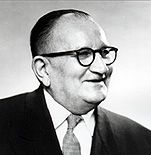Gilson, Ockham, and Psychology

One of the favorite book reviews I ever wrote was for Touchstone, writing about Etienne Gilson's The Unity of Philosophical Experience (which Ignatius Press had recently re-issued). Link.
I was reminded of that review (and that excellent book, possibly my favorite Gilson work) lately while re-reading parts of Daniel Robinson's An Intellectual History of Psychology. In his section about William of Ockham, he wrote:
Where he exceeded his predecessors was in examining carefully the nature of mind itself, in his attempt to assess the reality of universals and, for that matter, particulars. It is not surprising that Renaissance scholars would be able to identify more readily with the writings of Ockham, not because Ockhamism was liberally heretical, but because it was fundamentally psychological. Emphasis added.
The psychologist's Robinson's book was published in 1976. The philosopher's Gilson's in 1937. But they captured the same truth. From my book review:
Gilson explores the psychologism of William of Ockham. Ockham taught that knowledge is attainable only by intuition–that which our senses directly show us. Ockham's reliance on intuition was combined with his famous “razor,” which taught that we should never presume the existence of anything else if it is not absolutely necessary to explain a thing or occurrence. So, for example, intuition shows us hand puppets, but the razor tells us we cannot automatically presume the existence of hands, since the puppets could be supported without hands. Most notably, they could be supported by the will of God, which was Ockham's favorite possibility (he thought references to things beyond the razor detracted from God's powerful glory).
The philosophical upshot of this is perhaps best seen with respect to the phenomenon of “cause and effect.” Ockham said you can directly see Item A (say, a cue ball) and you can see Item B (the eight ball). He said you can see the cue ball hit the eight ball, but you cannot thereby assume that the cue ball was the cause of the eight ball rolling into the pocket because, although you can see cause at work, you can't see cause itself. You can't pick up and touch “cause”; it is not a directly sensible thing. You only see Item A and Item B repeatedly working with each other to produce the impression of cause and effect, but that is not the same thing as directly sensing the cause, and we are therefore wrong to posit the existence of a cause (cf. pp. 66”“67).
This, Gilson says, is sound psychology. Our knowledge is gained from direct sense and, mentally speaking, we really can't see or feel “cause.” Ockham, however, was engaging in psychologism to say that this psychological fact represented reality. He took a psychological fact and applied it to the functioning of the real world, with the result that he posited an absurd picture of the world and one that, for obvious reasons, led to skepticism.
I love it when those scholarly parallels happen.



